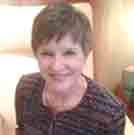|
|
 |
|
The
views expressed
on this page are soley those of the author and do not
necessarily
represent the views of County News Online
|
 |
Self-Education
By Kate Burch
Aside from the embarrassingly obvious fact that the Left’s vilification
of Wisconsin Governor Scott Walker for having completed “only” 3 ¾
years of college is a ploy to discredit him as a potential Presidential
candidate (a la Sarah Palin, et al.), it’s time to think about the
differences between warming a classroom seat and becoming educated.
It is news to no one that performance of the U.S. educational
establishment over the past several decades has been dismal. As
there has been pressure for more and more students to attend college,
we have seen colleges, awash in taxpayer dollars, grow in size and
luxuriousness—and the amount of tuition they charge. In the
meantime, roughly 40% of incoming students require remedial work before
beginning actual college-level courses, the average number of years
enrolled has increased from four to five or more, and graduation rates
have not increased.
Some hard truths include the fact that only about 75% of the population
(those of average and above-average intelligence) are mentally equipped
to succeed at a secondary education program. Only roughly 25%
(those of above-average intelligence) are suited for “higher”
education. In denial of these facts, and to meet the cultural
expectations and keep the funding spigots flowing, schools have dumbed
down their curricula and engaged in rampant grade inflation.
Prospective employers no longer assume that a college degree implies
competence in oral and written communication, critical thinking,
planning and organizing, and other skills necessary for good job
performance. In my professional career as a psychologist, I
performed many psycho-educational assessments of adults and
children. A number of adults consulted me to learn the reasons
why they were unable to succeed at work despite having educational
credentials. To my horror, I found some with degrees, even
advanced degrees, who could demonstrate actual academic skills only at
a much lower level—sometimes as low as middle-school level.
Now all this is not to say that academic skills are the only abilities
relevant to and necessary for job success. There are many, many
jobs that are extremely valuable, useful, and necessary that do not
require higher formal education. And also, there are individuals
who are truly competent in academic skills who lack psychological
and/or characterological qualities needed for successful
performance. It is also true that some highly competent
individuals find the school environment ill-matched to their
personalities—think Bill Gates.
We probably all have known people who were quite successful without
corresponding educational credentials because they were good at
developing a certain skill set. Some of us also know people who
devote themselves to continuing self-education—a process that is made
much easier today than in Abraham Lincoln’s day, when he would walk six
miles to obtain a book, and then have to read it by candlelight.
Sitting at our computers, the world is open to us.
Becoming truly educated is a lifelong process that requires curiosity,
will, effort, engagement, and direction. Truly educated people
are rare. Many more people, not motivated by intellectual
curiosity, are interested in learning what they need in order to
successfully fill their niche in life. These people, and society,
could be better served by an educational establishment that would
acknowledge that there are differences among people in their abilities,
their interests, and their desires, and that would attempt to guide and
assist them to become successful.
|
|
|
|

